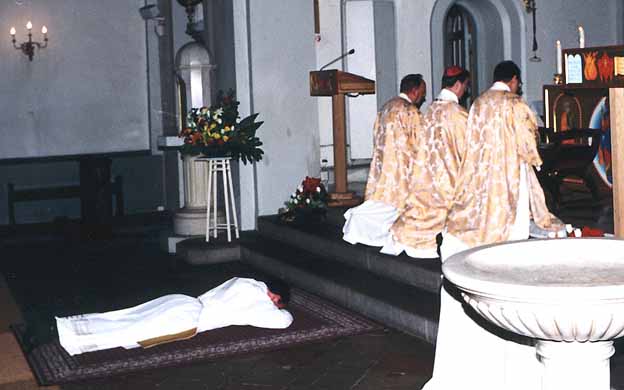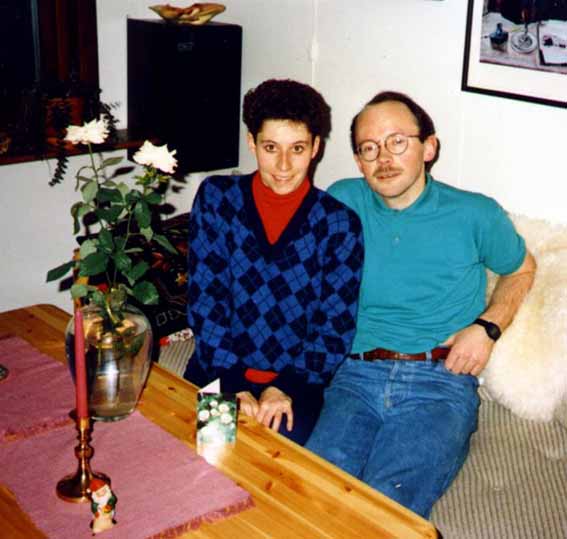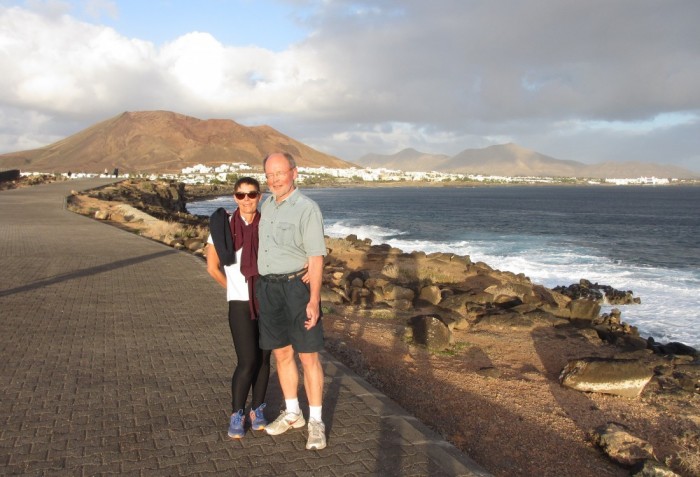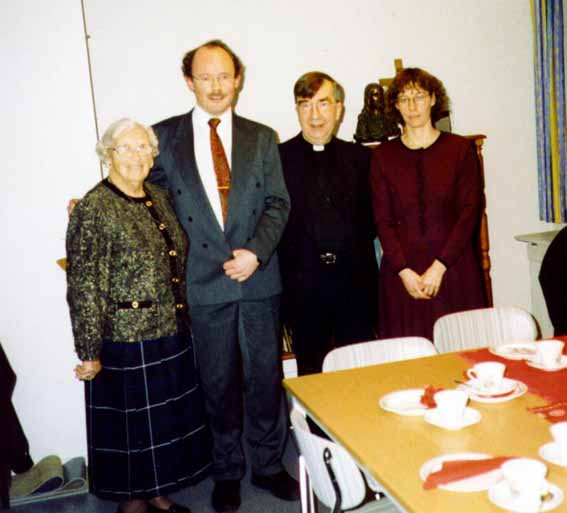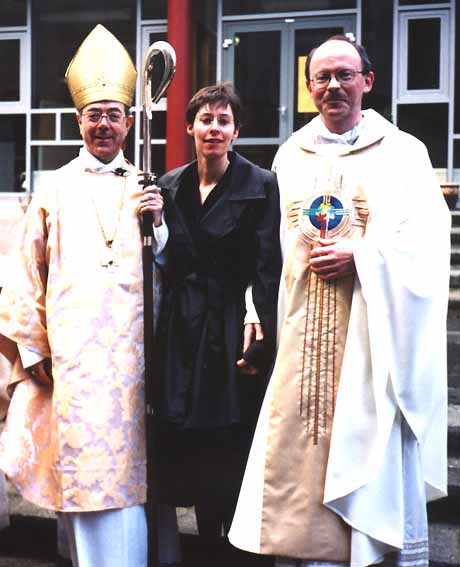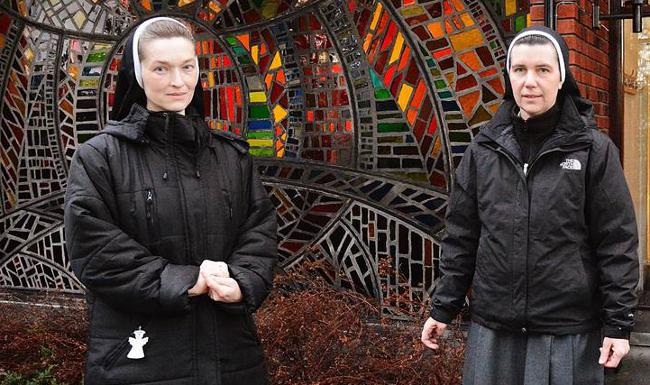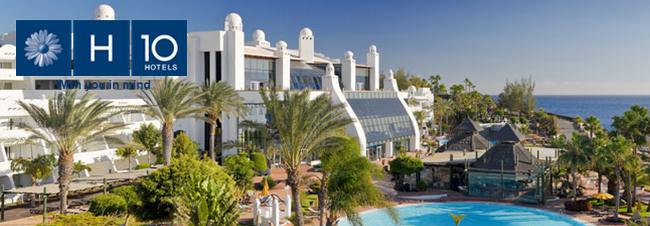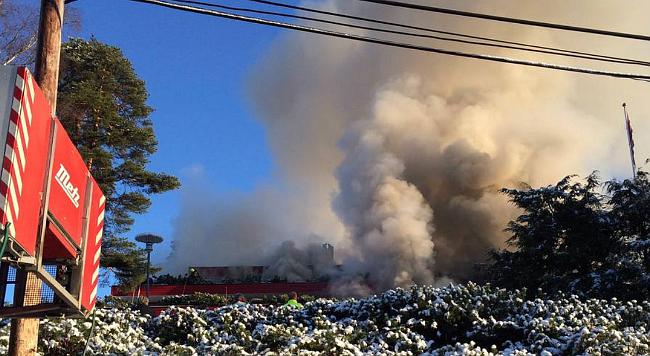Hvert år er fokus 4. søndag i advent veldig mye på jomfru Maria. I årets tekster (se her) hører vi i første lesning om byggingen av tempelet, og blir minnet om et bilde der Maria lignes med tabernakelet, som bærer av den aller helligste. I år (år B) hører vi i evenageliet selve teksten om engelen Gabriels besøk hos Maria, som avsluttes med at Maria svarer slik på den sjokkerende utfordringen om å bli frelserens mor: «Jeg er Herrens tjenerinne. Det skje meg som du har sagt.»
Today, the fourth and last Sunday of Advent, the liturgy wants to prepare us for Christmas, which is «already at the gates,» inviting us to meditate on the passage of the Annunciation of the angel to Mary. The Archangel Gabriel reveals to the Virgin the will of God that she become the mother of his only begotten Son. «You will conceive in your womb and bear a son, and you shall name him Jesus. He will be great and will be called Son of the Most High.»
We fix our gaze upon this simple young woman of Nazareth in the moment in which she makes herself available to the divine message with her «yes.» We take in two essential aspects of her attitude, which is for us a model of how to prepare for Christmas.
Above all, her faith, her attitude of faith, which consists in listening to the Word of God to abandon herself to this Word with complete availability of mind and heart. Responding to the Angel, Mary said, «I am the handmaid of the Lord. May it be done to me according to your word.»
In her «here I am» full of faith, Mary does not know which paths she will have to trod, which sorrows she will have to suffer, which risks she will face. But she knows that it is the Lord who is asking, and she trusts totally in Him and abandons herself to His love. This is Mary’s faith.
The other aspect is the capacity of the Mother of Christ to recognize the time of God. Mary is the one who has made possible the incarnation of the Son of God, the «revelation of the mystery kept secret for long ages.»
She has made possible the incarnation of the Word, thanks to her humble and courageous «yes.» Mary teaches us to welcome the favorable moment in which Jesus comes into our lives and asks for a generous and prepared response. And Jesus comes.
In fact, the mystery of the birth of Jesus in Bethlehem, which occurred historically more than 2,000 years ago, is implemented as a spiritual event in the «today of the liturgy.» The Word, who dwelled in the virginal womb of Mary, in the celebration of Christmas, comes to call anew the heart of each Christian. He comes by and calls. Each one of us is called to respond, as Mary did, with a personal and sincere «yes,» placing ourselves fully at the disposal of God and his mercy. How many times Jesus comes in our lives and how many times he sends us an angel. And how many times we don’t realize it because we are very busy, submerged in our thoughts, in our activities, and in these days, in the preparation for Christmas, and we don’t realize the one who is passing by and knocking at the door of our hearts asking to be welcomed, asking for a «yes» like that of Mary. A saint said, «I fear that the Lord will pass by.» Do you know why he was afraid? It was fear of not realizing, of allowing him to pass by.
When we feel in our hearts, «I would like to be better. I repent of this thing I’ve done,» there is the Lord who calls, who makes us feel this, the desire to be better, the desire to be closer to others, to God. If you feel this, stop. The Lord is there. Go to pray, and maybe go to confession to clean up the dwelling a bit. This is good. But remember well, if you feel this desire to improve, it is He who is calling. Do not let him pass by.
In the mystery of Christmas, beside Mary, in silence, is the presence of St. Joseph, as is represented in all the nativity scenes, also in this one that you can admire here in St. Peter’s Square. The example of Mary and of Joseph is for all of us an invitation to welcome Jesus with an entirely open soul, Jesus who out of love has made himself our brother. He comes to bring to the world the gift of peace. «Peace to those on whom his favor rests,» as the choir of angels announced to the shepherds. The precious gift of Christmas is peace and Christ is our true peace. And Christ calls to our hearts to give us peace. Peace of the soul. Let us open the gates to Christ.
We entrust ourselves to the intercession of our Mother and of St. Joseph, to live a Christmas that is truly Christian, free of all worldliness, prepared to welcome the Savior, the God-with-us.

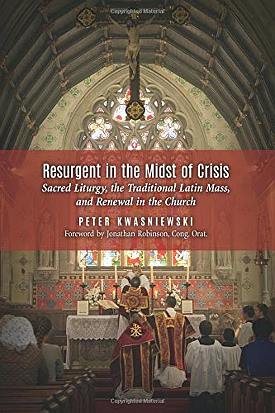 I går mottok jeg – fra amazon.co.uk – flere bøker (mest om liturgi, som vanlig), bl.a. den helt nye Resurgent in the Midst of Crisis av dr. Peter Kwasniewski. Boka har følgende informasjon og lovprisninger på omslaget:
I går mottok jeg – fra amazon.co.uk – flere bøker (mest om liturgi, som vanlig), bl.a. den helt nye Resurgent in the Midst of Crisis av dr. Peter Kwasniewski. Boka har følgende informasjon og lovprisninger på omslaget: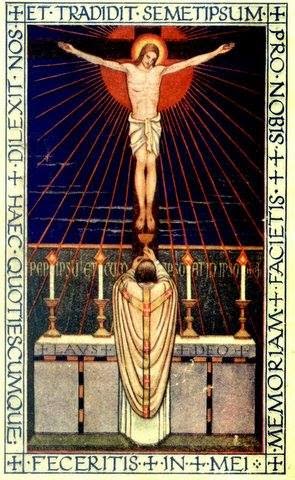 Mens dyp taushet lå over alle ting og natten var rukket midtveis i sitt løp. kom ditt allmektige Ord, Herre, ned fra den himmelske kongsstol. (Introitus til messen søndag i juleoktaven –
Mens dyp taushet lå over alle ting og natten var rukket midtveis i sitt løp. kom ditt allmektige Ord, Herre, ned fra den himmelske kongsstol. (Introitus til messen søndag i juleoktaven – 